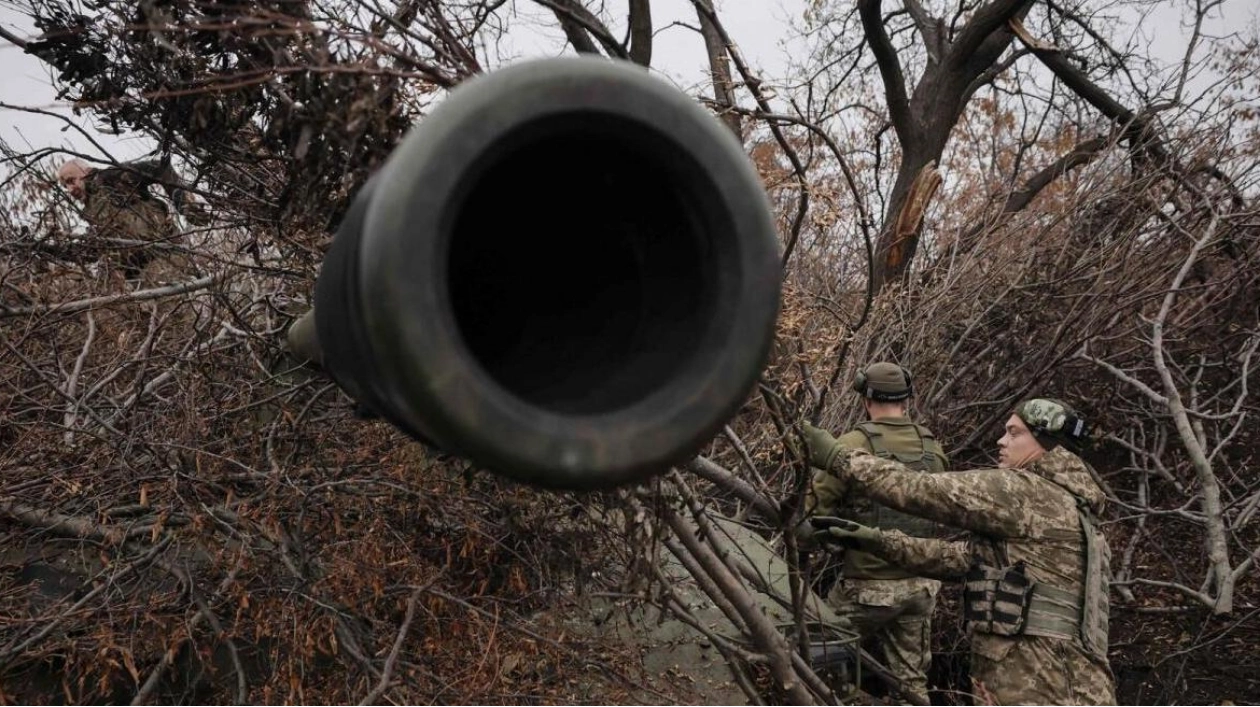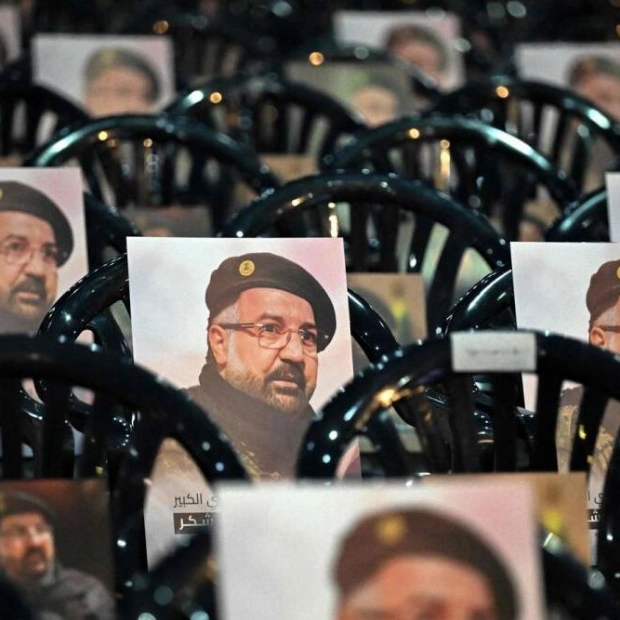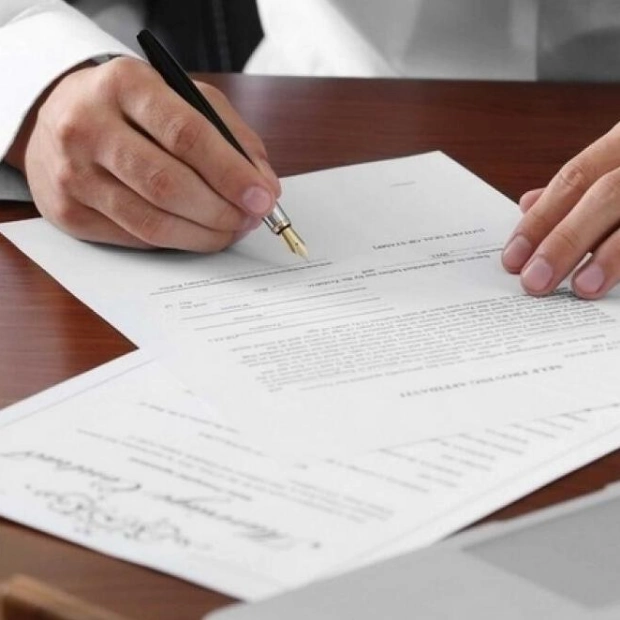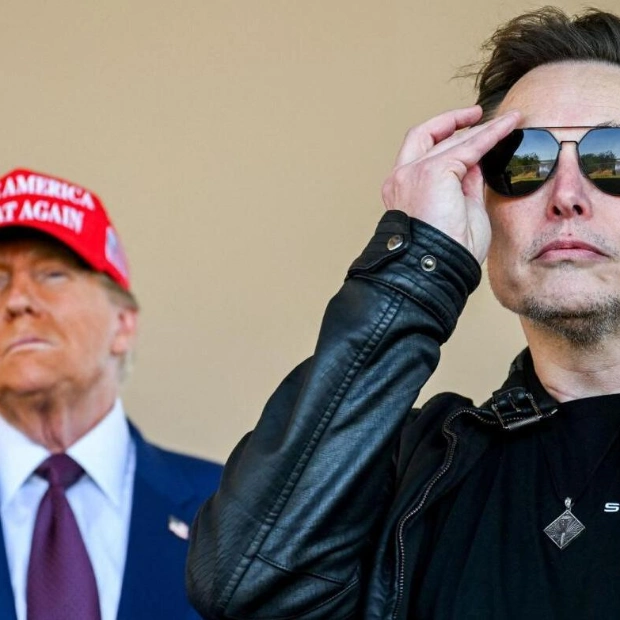Ukrainian servicemen from the 24th Mechanized Brigade camouflage a 2s5 152 mm self-propelled howitzer at an undisclosed location near Chasiv Yar in Donetsk region on November 18, 2024. — AFP
Ukraine marked 1,000 days since Russia's full-scale invasion on Tuesday, with weary troops fighting on multiple fronts, Kyiv under siege from drone and missile attacks, and officials preparing for Donald Trump's return to the White House in January. In a boost for Ukraine, US President Joe Biden authorized the use of US missiles against deeper targets inside Russia, potentially limiting Russia's ability to launch attacks and supply the front. However, military experts say this shift alone may not be enough to alter the course of the 33-month-old war. More significant changes in the US stance are expected when Trump takes power, having promised to end the war quickly without specifying how.
Zelenskiy posted a video featuring dramatic moments from the war, including his speech announcing the invasion, in which he said: "Don't panic, we're strong, we're ready for everything, we'll defeat them all." Thousands of Ukrainian citizens have died, over 6 million live as refugees abroad, and the population has decreased by a quarter since Vladimir Putin ordered the invasion by land, sea, and air, marking Europe's largest conflict since World War Two. Military losses have been catastrophic, with casualty figures remaining closely guarded secrets. Public Western estimates, based on intelligence reports, suggest hundreds of thousands have been wounded or killed on both sides.
Ukrainian servicemen from the 24th Mechanized Brigade prepare to fire a 2s5 152 mm self-propelled howitzer towards Russian positions at an undisclosed location near Chasiv Yar in Donetsk region on November 18, 2024. — AFP
Tragedy has touched every corner of Ukraine, where military funerals are common in major cities and remote villages, and people are exhausted from sleepless nights of air raid sirens and anguish. In the first year after the invasion, Ukrainian troops pushed Russian forces back from the outskirts of Kyiv and recaptured large areas with surprise military successes against a larger and better-armed adversary. However, since then, the conflict has devolved into relentless trench warfare, grinding eastern Ukrainian cities into dust. Russian forces still occupy a fifth of Ukraine and have slowly but steadily gained ground over the past year.
"In the frozen trenches of the Donetsk region and in the burning steppes of the Kherson region, under shells, hail, and anti-aircraft guns, we are fighting for the right to live," Ukraine's top commander Oleksandr Syrkyi wrote on Telegram. The return of Trump, who has criticized the scale of US aid, raises questions about the united Western front against Putin but also opens the possibility of talks to end the fighting. No such negotiations are known to have taken place since the war's early months.
A sense of escalation has been palpable as Moscow and Kyiv strive to improve their battlefield positions ahead of any talks. Russia, already bolstered by Iranian attack drones and North Korean artillery shells and ballistic missiles, has now deployed 11,000 North Korean troops, some of whom Kyiv says have clashed with Ukrainian forces who have seized part of Russia's Kursk region. One senior Kyiv official stated that Pyongyang has the capacity to send 100,000 soldiers. Meanwhile, Ukraine has some of its best troops trying to hold onto that small piece of Russian territory, captured in August as a bargaining chip. Kyiv claims Russia has massed 50,000 troops there, while Kremlin forces have also made their quickest gains since 2022 in eastern Ukraine and increased pressure in the northeast and southeast. With winter setting in, Moscow renewed its aerial assault on Ukraine's struggling power system on Sunday, firing 120 missiles and 90 drones in the largest barrage since August.
President Volodymyr Zelensky said last week that Ukraine must do its best to end the war next year through diplomatic means. However, there has been no public narrowing of the gulf in the enemies' negotiating positions. Kyiv has long demanded full Russian withdrawal from all occupied territory and security guarantees from the West comparable to NATO membership to prevent future Russian attacks. The Kremlin insists Ukraine must abandon all ambitions to join NATO and withdraw its troops entirely from the provinces Russia claims to have annexed since the invasion. Signs beyond Trump's return suggest the West is preparing for talks. German Chancellor Olaf Scholz called Putin on Friday for the first time in nearly two years. Zelenskiy said that move reduced the Russian leader's isolation. There must be no repeat of the negotiation process that brought a ceasefire to an earlier conflict a decade ago, leaving Ukraine without guarantees to prevent an all-out attack. "What we need is real peace."
Source link: https://www.khaleejtimes.com






